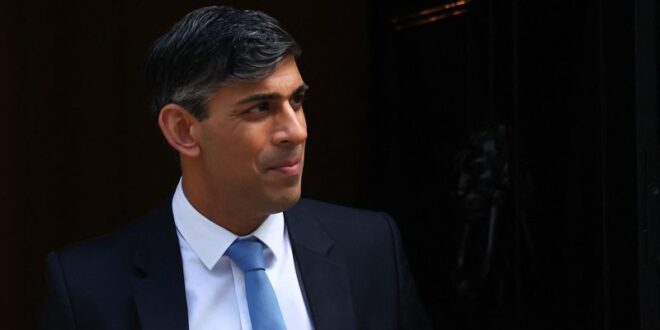LONDON (Reuters) – British Prime Minister Rishi Sunak will look at tightening the rules for long-term sick leave in a bid to reverse a rise in the number of Britons who have permanently dropped out of the workforce.
Labour force participation among working-age Britons is its lowest since 2015, due to a rise in long-term illness and a greater number of students, in contrast to other large, rich nations which have seen increased participation since 2020.
Sunak, in excerpts of a speech due later on Friday, said the rising number of people not working due to mental health conditions was a particular concern.
“We need to be more ambitious about helping people back to work and more honest about the risk of over-medicalising the everyday challenges and worries of life,” he said.
Some 9.4 million Britons aged 16 to 64 – 22% of that age group – are neither working nor unemployed, up from 8.55 million just before the pandemic, according to official data. Of those, 2.8 million are long-term sick and 206,000 are temporarily ill.
Last year Britain’s budget watchdog said a quarter of people who were off work due to long-term sickness were waiting for medical treatment, although it added that cutting waiting lists to their 2015 length might only get 25,000 back into work.
Over half of the long-term sick reported suffering from ‘depression, bad nerves or anxiety’, although many said it was a secondary condition alongside their main health problem.
Sunak’s office said medics were too willing to issue repeat notes approving extended sick leave, rather than advising how a person could get back to work, paving the way for people to move on to long-term sickness benefits.
Sunak said he wanted to test shifting the responsibility for assessment from family doctors to healthcare workers tasked with providing “an objective assessment of someone’s ability to work and the tailored support they need to do so”.
“We don’t just need to change the sick note, we need to change the sick note culture so the default becomes what work you can do – not what you can’t,” he said.
(Reporting by David Milliken; editing by William James)
 BeritaKini.biz Berita Viral Terkini di Malaysia
BeritaKini.biz Berita Viral Terkini di Malaysia





